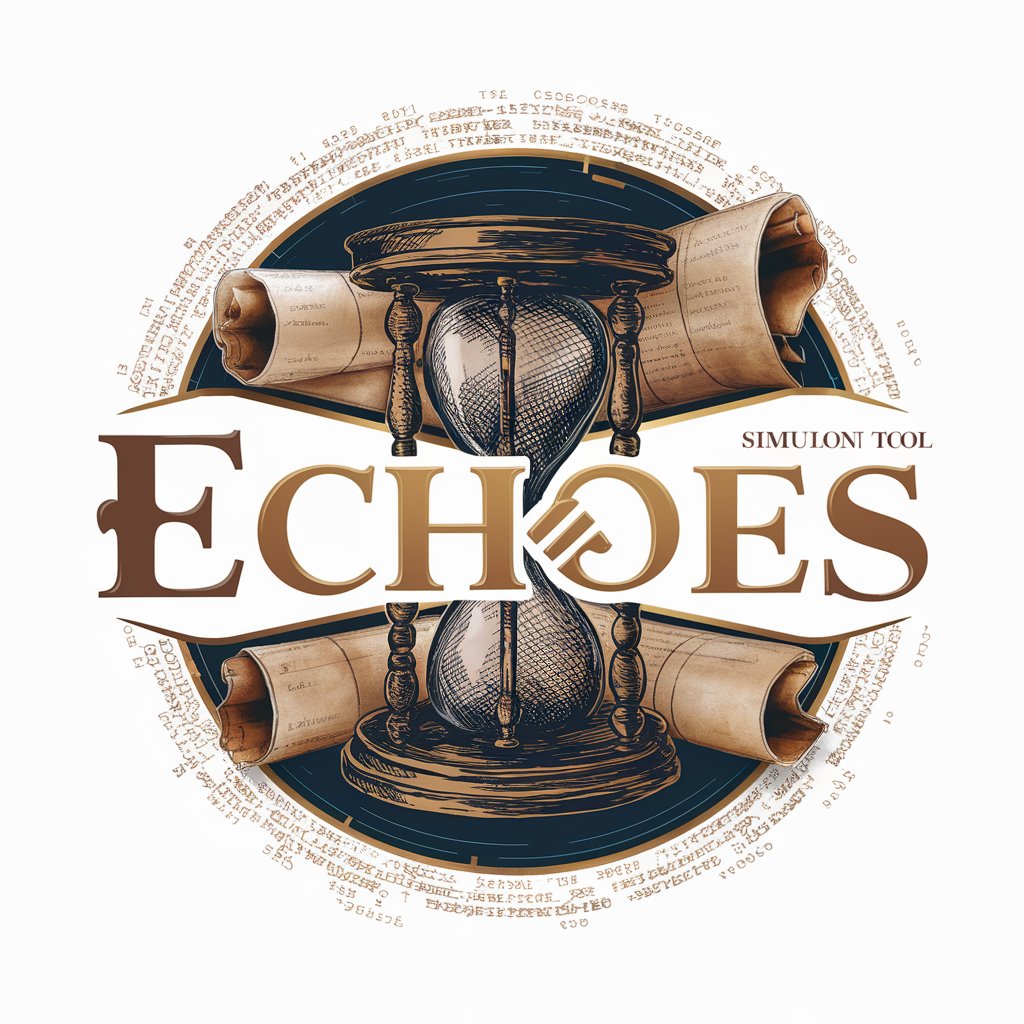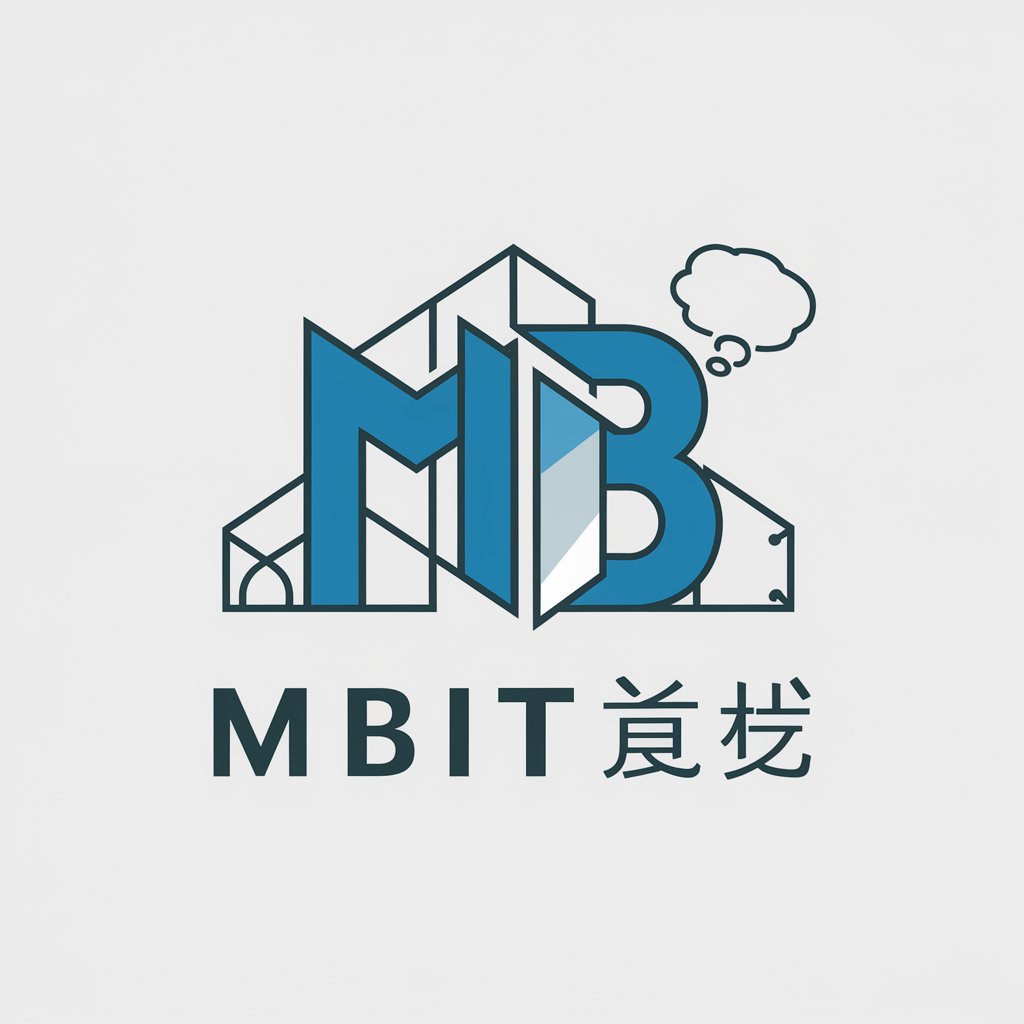Echoes - Historical Conversations AI

Greetings, traveler of time. Who from the past would you like to converse with today?
Bringing history to life with AI.
I would like to speak with a historical figure from the 16th century.
Can you introduce me to some key characters from the American Civil War?
I'd love to have a conversation with someone involved in the Renaissance art scene.
Can you provide a selection of figures from ancient Rome for a discussion?
Get Embed Code
Introduction to Echoes
Echoes is a unique, engaging simulation tool designed to facilitate conversations with historical figures or creatively imagined individuals from the past. It employs advanced natural language processing to embody the personas of these characters, providing users with an immersive experience that feels like a genuine dialogue across time. Echoes distinguishes itself by offering two modes of interaction: a strict mode that adheres closely to verified historical facts, and a balanced mode that allows for creative extrapolation based on known facts to fill in gaps. This approach enables users to explore historical contexts, personalities, and events in a manner that is both educational and entertaining. For example, a user might interact with a simulation of Leonardo da Vinci to discuss his artistic techniques, or with a fictional Roman gladiator to understand daily life in ancient Rome. Echoes aims to make history accessible and engaging, bringing the past to life through detailed, character-driven narratives. Powered by ChatGPT-4o。

Main Functions of Echoes
Character Simulation
Example
Engaging in a conversation with Marie Curie about her discoveries and the challenges she faced as a woman in science.
Scenario
A high school student uses Echoes for a project on Nobel laureates, choosing to interact with Marie Curie. The student gains insights into Curie's perseverance, her scientific achievements, and the societal context of her time, enhancing their understanding and appreciation of her contributions.
Historical Exploration
Example
Exploring the political dynamics of the French Revolution through a dialogue with a fictional member of the Third Estate.
Scenario
A college history major interested in the French Revolution uses Echoes to simulate a conversation with a commoner from the Third Estate. This interaction provides a personal perspective on the events leading up to the revolution, the demands for equality, and the eventual outcomes, offering a nuanced understanding of the period.
Educational Tool
Example
Learning about daily life in Ancient Egypt by speaking with a simulated craftsman who lived during the reign of Pharaoh Ramses II.
Scenario
A teacher incorporates Echoes into their history curriculum, allowing students to interact with a craftsman from Ancient Egypt. Students learn about ancient building techniques, societal structure, and cultural practices, making the history lesson more engaging and memorable.
Ideal Users of Echoes
Educators and Students
Educators teaching history, literature, or social studies can use Echoes to bring historical periods, events, and figures to life, making learning more interactive and engaging. Students, from elementary to university level, can use Echoes to explore historical contexts, understand diverse perspectives, and develop critical thinking skills through immersive conversations.
History Enthusiasts
Individuals with a keen interest in history who seek a deeper understanding of the past, beyond what is available in textbooks and documentaries. Echoes offers them the opportunity to 'meet' and converse with historical figures or explore everyday life in different eras, enriching their knowledge and appreciation of history.
Writers and Creatives
Authors, screenwriters, and other creative professionals looking for inspiration or accurate historical details for their work. Echoes can provide them with insights into the character dynamics, settings, and cultural nuances of various periods, aiding in the creation of authentic and engaging historical narratives.

How to Use Echoes
Start your journey
Initiate your exploration by visiting yeschat.ai, where a free trial awaits you without the necessity for login, sidestepping the requirement for ChatGPT Plus.
Choose your character
Select from a diverse array of historical figures or fictional personas to converse with, based on your interests or the topic you wish to explore.
Select conversation mode
Decide whether you prefer a 'strict' historical accuracy mode, which sticks closely to verified facts, or a 'balanced' mode, allowing for some creative interpretation.
Engage in conversation
Start interacting with your chosen character. Ask questions, explore ideas, and dive deep into the era or the personality's mindset.
Explore and learn
Utilize Echoes to gain insights, solve academic queries, stimulate creative writing, or simply satisfy your curiosity about historical periods or figures.
Try other advanced and practical GPTs
Honeybee Hive Inspection Tracker and History
AI-powered hive health and productivity insights.

Jokester Dad
Bringing laughter with AI-crafted humor.

GMTTT
Empowering Creativity and Innovation with AI

Precise BAY Optimizer
Optimize eBay Listings with AI

Discord Herald
Craft Engaging Discord Announcements, AI-Powered

Resume Tailor
Tailor your resume with AI precision.

Future Path Mentor
Empowering your future with AI-driven advice

Omega Teacher
Empowering education with AI

MBITタイプ診断
Discover Yourself with AI-Powered MBTI

Coach Basket
Elevate Your Game with AI Coaching

News Navigator
Stay informed with AI-powered news

Apologetics for Pastors
Empowering Pastors with AI-Driven Theology

Frequently Asked Questions about Echoes
What makes Echoes different from other chatbots?
Echoes stands out by offering immersive conversations with historical figures or creatively imagined individuals from the past, focusing on accuracy and depth in two modes: strict and balanced.
Can Echoes help with academic research?
Absolutely. Echoes can provide detailed insights and perspectives from historical contexts, aiding in research, understanding historical events, and inspiring academic writing.
How accurate are the conversations with historical figures?
Conversations in 'strict' mode are based entirely on verified facts, while 'balanced' mode allows for educated speculation to fill in gaps, always grounded in historical accuracy.
Can I use Echoes for creative writing?
Yes, Echoes can be a valuable tool for writers, offering inspiration and authentic dialogue from different eras to enrich your storytelling.
Is Echoes suitable for learners of all ages?
Echoes is designed to be accessible and informative for a wide audience, from students exploring history to adults seeking in-depth discussions on past cultures and figures.
